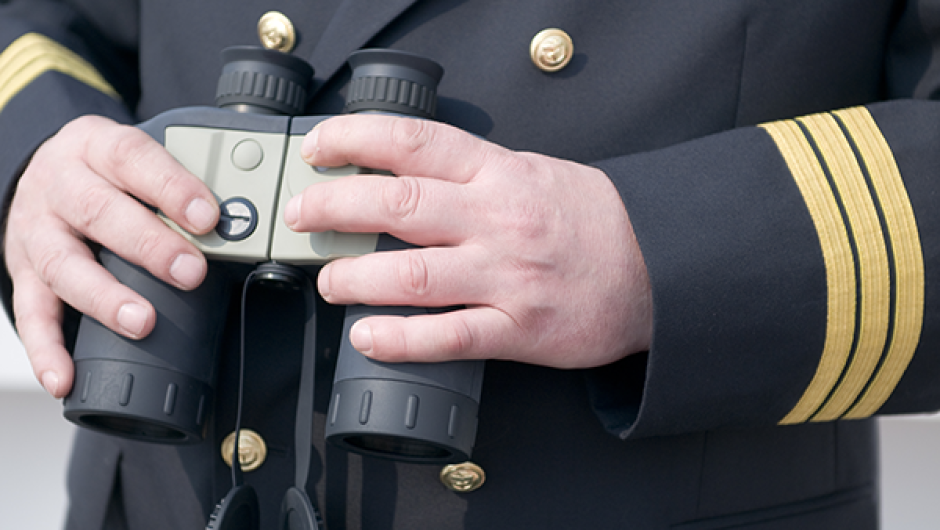Seafarers important in future shipping

Even in the future, seafarers will have a significant impact on shipping even though shipping becomes more automated. This is one of the conclusions of a study from IMarEST, Institute of Marine Engineering, Science and Technology.
The study consists of questionnaires about autonomous shipping to 600 respondents as well as a follow-up round table panel during the Singapore Maritime Week this year. The results are presented in the report "Autonomous Shipping - Putting the Human Back in the Headlines".
From the report:
https://www.imarest.org/all-docman-documents/publications/round-tables/1...
"Nearly two-thirds of survey respondents believed that the current workforce at sea could be trained to handle the remote operation/ management of autonomous ships. This view was particularly supported by the panel with significant strength of feeling towards understanding this impending and presumed knowledge gap and filling it.
Therefore, from a succession planning perspective, it is recommended that opportunities should be created to train for a shore-based career as well as one at sea. The panel also recommended that further investigation is carried out into fully understanding how, why, and by whom operational functions are performed on-board, in order to develop a hierarchy of needs.
Further, the functional requirements of a vessel should be considered from berth to- berth including all functions, roles and responsibilities. This would facilitate a road-mapping exercise to determine which functions must be translated to the shore, how they will be performed, and when they will be required. This will provide a richer understanding of the skills shortfalls and inform future training requirements moving forward. Panel members and survey respondents broadly agreed that current shore-based training will need to adapt if the workforce is to be retained for future succession into these sorts of roles (89%).
It was further highlighted in discussion that this succession does not relate to just making ‘digital captains’ for example. The aim is not to remove particular ranks, rather the challenge is to replace particular on-board functions with remote and autonomous technology. The panel felt that the navigational-related functions can initially be replaced with smarter technology, which would remove or reduce the paperwork burden for example.
It was also suggested that some routine maintenance functions currently performed on-board by the marine engineer could be fulfilled from the shore as long as the correct technology and safeguards were in place.
The roundtable discussion also highlighted the tremendous technological advances that have already been made towards automation. Over the years, many tasks formerly carried out manually have been automated, resulting in a reduction in crew numbers but increased technological know-how among those who remain.
That said, the technology, safety/economic/other factors, are still a quantum leap away from autonomy.
The consensus was that the future workforce will need to be trained differently, and that, in time talent could be relocated from seafaring roles to shore-based roles as the shipping sector moves more functions in favour of remote and autonomous operation.
Asked whether seafarers would remain an essential component of the shipping industry’s long term future, 85% believe that to be so. So did the panel."
Swedish research
In Sweden, several projects concerning humans and future shipping, takes place. At Kalmar Maritime Academy, Linnaeus University, the project, “Autonomy and Responsibility - the role of the human operator in future shipping” shed light on future opportunities and challenges for organizational developments and the role of human operators in the shipping industry. One expectation is that the results can enrich the current technology development and provide a social and organizational context to support ongoing developments and provide input to decision-making processes. Further, the project aims to provide guidance and recommendation for the future of maritime education and training in the light of an increased digitalization.
https://lnu.se/forskning/sok-forskning/forskningsprojekt/projekt-autonom...
Lighthouse has also launched a preliminary study to chart the competence requirements for shipping and marine engineering. The preliminary study will ultimately identify possible proposals on how to ensure the provision of skills to meet different skills needs for the Swedish maritime industry.
And in September 2018, Nicole Almeida Costa at Chalmers published her thesis titled “Human-centred design for maritime technology and organizational change”. The thesis includes six separate studies, which contribute to better understand the practice and value of Human Factors and of a human-centred approach to the design of new maritime systems that are based on the needs of those who operate them.
https://research.chalmers.se/publication/504379
-
 DNV: Metanol är ett moget alternativt bränsle
DNV: Metanol är ett moget alternativt bränsle -
 Se Hållbar sjöfarts uppsamlingsheat
Se Hållbar sjöfarts uppsamlingsheat -
 NextWave – en podd som ska locka unga
NextWave – en podd som ska locka unga -
 Ny studie: Eldrivna pendelbåtar kan effektivisera Stockholms kollektivtrafik
Ny studie: Eldrivna pendelbåtar kan effektivisera Stockholms kollektivtrafik -
 Sjöfartens utsläpp ökar
Sjöfartens utsläpp ökar -
 Sociala relationer påverkar val av bränsle
Sociala relationer påverkar val av bränsle -
 Sjöfartens omställning kräver ”mjukare” påtryckningar
Sjöfartens omställning kräver ”mjukare” påtryckningar -
 Hon hade avtalad tid med Kapten ynkrygg
Hon hade avtalad tid med Kapten ynkrygg -
 Lighthouse omvärldsanalys 2025 – osäkerhet och tullar präglar sjöfarten
Lighthouse omvärldsanalys 2025 – osäkerhet och tullar präglar sjöfarten -
 Se seminariet Shipping in the Marine Environment
Se seminariet Shipping in the Marine Environment

